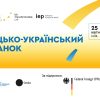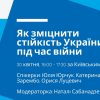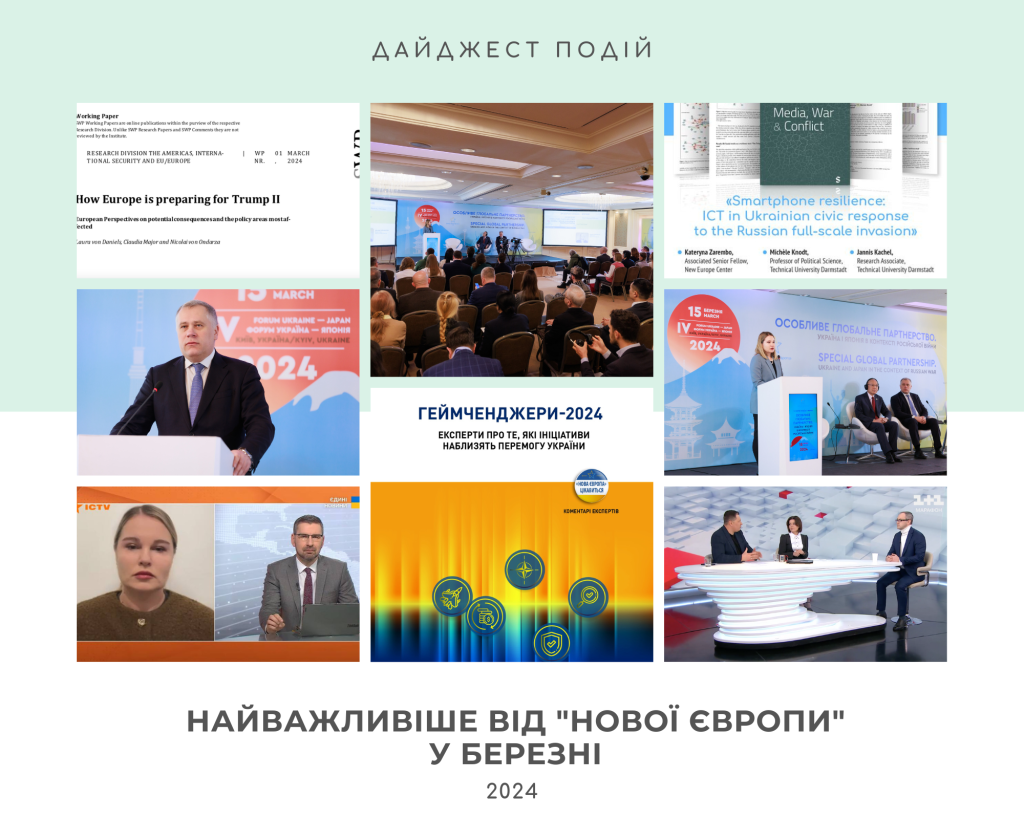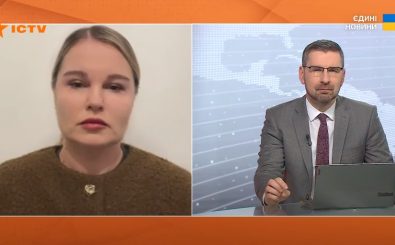EXPERT POLL
The poll is a part of the big research of the New Europe Center on the risks and opportunities of different scenarios for the conflict settlement in Donbas.
65 experts (38 Ukrainian and 27 foreign) participated in the poll. It was conducted in February-March 2020. The experts had to assess the probability and desirability of each of the possible scenarios for the development of the situation around the settlement of the conflict in Donbas on a ten-point scale (the higher the score, the more likely or desirable the scenario). We would like to bring to your attention separately the estimates of Ukrainian and foreign experts, as well as the average of the total estimates of both Ukrainian and foreign experts. Script timeframe is one year.
The main findings of the poll:
- The status quo (i.e. the immutability of the situation) is identified by experts as the most likely scenario.It does not foresee any shift in the negotiations. In this regard, Ukrainian and foreign experts are in solidarity. During the interviews, the analysts pointed out that it is the Russian leadership that is not interested in any changes. Any concessions on the part of Russia would have crossed out all of Moscow’s previous six years spent on exhausting Ukraine through the conflict.
- The freezing of the conflict ranks second in the probability rating (in this case, Ukrainian and foreign experts also share the same opinion). Although certain analysts polled by the New Europe Center have stressed that Russia is not even interested in freezing the conflict (following the Transnistrian scenario). The only option that would suit Moscow is a special status for the occupied regions, which implies their autonomy within Ukraine.
- The rest of the scenarios are significantly behind the first two options, and the estimates of their probability do not exceed the average of 5 points. Although there are differences of opinion between foreign and Ukrainian experts regarding the probability of these scenarios (except for the status quo and the freezing of the conflict). For instance, Ukrainian experts placed Russia’s offensive third in the probability rating, while their foreign counterparts gave the third position to Ukraine’s withdrawal from the Minsk process. At the same time, foreign experts do not actually believe in the probability of a Russian offensive in the near future (a foreign experts’ probability estimate is 2.43 points against the Ukrainian assessment of 4.29 points).
- The introduction of a full-fledged peacekeeping mandate with access to the entire territory of the occupied areas is considered by both groups of experts to be the most desirable scenario. Ukrainians and foreign analysts also showed solidarity I the opinion that the second and third most desirable scenarios would be the reintegration of Donbas on the basis of decentralization and freezing of the conflict. As we see, there is only one scenario among the three leaders in terms of both desirability and probability, and it is the freezing of the conflict.
- The special status is actually equated with Russia’s military offensive. In the desirability rating of the scenarios, the special status (autonomization) of Donbas has been evaluated with the same low score as the Russian full-scale offensive. The officials involved in the negotiation process should consider such a coincidence in the estimates. According to the poll among Ukrainian experts, the desirability of special status and Russian offensive was estimated at 1.58 and 1.00 points, respectively. Foreign experts estimated the desirability of special status at 2.39 points, and the Russian offensive at 1.04 points.
- There is only one step between decentralization and special status.Foreign analysts also provided their specific comments on the estimates. For example, they noted that while defining settlement through decentralization as the second most desirable scenario, they were aware that the title “decentralization” would actually conceal virtual “autonomy” for the occupied territories.
- Ukraine’s military operation to restore sovereignty and territorial integrity was assessed as the least likely scenario. There is solidarity between Ukrainian and foreign experts on this issue. However, there are different opinions regarding the desirability of such development. For instance, the desirability of this forceful scenario was estimated at 3.21 points in Ukraine, and foreign experts set twice lower estimate, 1.64.
Overall results
| PROBABILITY | Scenario | Rating |
| 1 | Status quo | 7.77 |
| 2 | Freezing of the conflict | 5.64 |
| 3 | Ukraine’s withdrawal from the Minsk Agreements | 3.85 |
| 4 | Autonomization (special status) | 3.80 |
| 5 | Reintegration of Donbas on the basis of decentralization | 3.73 |
| 6 | Russia’s offensive | 3.50 |
| 7 | Introduction of a peacekeeping mission | 3.27 |
| 8 | Ukraine’s military operation | 1.95 |
| DESIRABILITY | Scenario | Rating |
| 1 | Introduction of a peacekeeping mission | 8.21 |
| 2 | Reintegration of Donbas on the basis of decentralization | 6.67 |
| 3 | Freezing of the conflict | 5.53 |
| 4 | Ukraine’s withdrawal from the Minsk Agreements | 4.23 |
| 5 | Status quo | 4.09 |
| 6 | Ukraine’s military operation | 2.55 |
| 7 | Autonomization (special status) | 1.92 |
| 8 | Russia’s offensive | 1.02 |
Estimates of Ukrainian experts
| PROBABILITY | Scenario | Rating |
| 1. | Status quo | 7.63 |
| 2. | Freezing of the conflict | 5.29 |
| 3. | Russia’s offensive | 4.29 |
| 4. | Reintegration of Donbas on the basis of decentralization | 3.89 |
| 5. | Autonomization (special status) | 3.76 |
| 6. | Ukraine’s withdrawal from the Minsk Agreements | 3.55 |
| 7. | Introduction of a peacekeeping mission | 3.03 |
| 8. | Ukraine’s military operation | 2,03 |
| DESIRABILITY | Scenario | Rating |
| 1. | Introduction of a peacekeeping mission | 7.89 |
| 2. | Reintegration of Donbas on the basis of decentralization | 5.89 |
| 3. | Freezing of the conflict | 5.87 |
| 4. | Ukraine’s withdrawal from the Minsk Agreements | 5.45 |
| 5. | Status quo | 4.61 |
| 6. | Ukraine’s military operation | 3.21 |
| 7. | Autonomization (special status) | 1.58 |
| 8. | Russia’s offensive | 1.00 |
Estimates of foreign experts
| PROBABILITY | Scenario | Rating |
| 1. | Status quo | 7.96 |
| 2. | Freezing of the conflict | 6.11 |
| 3. | Ukraine’s withdrawal from the Minsk Agreements | 4.25 |
| 4. | Autonomization (special status) | 3.86 |
| 5. | Introduction of a peacekeeping mission | 3.61 |
| 6. | Reintegration of Donbas on the basis of decentralization | 3.50 |
| 7. | Russia’s offensive | 2.43 |
| 8. | Ukraine’s military operation | 1.86 |
| DESIRABILITY | Scenario | Rating |
| 1. | Introduction of a peacekeeping mission | 8.64 |
| 2. | Reintegration of Donbas on the basis of decentralization | 7.71 |
| 3. | Freezing of the conflict | 5.07 |
| 4. | Status quo | 3.39 |
| 5. | Ukraine’s withdrawal from the Minsk Agreements | 2.57 |
| 6. | Autonomization (special status) | 2.39 |
| 7. | Ukraine’s military operation | 1.64 |
| 8. | Russia’s offensive | 1.04 |
New Europe Center would like to express its gratitude to Ukrainian and foreign experts who participated in our research: Dmytro Shulga, Olena Snigyr, Valeriy Kravchenko, Sergiy Korsunsky, Olexiy Haran, Andriy Veselovsky, Oleksiy Melnyk, James Sherr, Richard Weitz, Tony van der Togt, Roman Waschuk, Christina Gherasimov, Gustav Gressel, Peter Dickinson, Alexander Duleba, Maciej Zaniewicz, Jilge Wilfried, Daisuke Kitade, Wojciech Konończuk, Miriam Kosmehl, Stefan Meister, Andrey Makarychev, Arkady Moshes, Mattia Nelles, Milan Nič, Stanislav Secrieru, Eleonora Tafuro, Daniel Szeligowski, Sergey Utkin, Maxime Audinet, Andras Racz, Hugo Klijn, Bob Deen.







